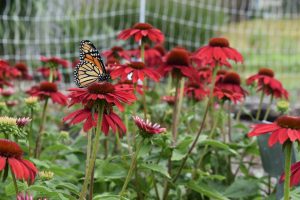Hancock and Washington Counties Master Gardener Volunteers News – January 2022
Table of Contents
Big Changes|Webinars offered |Winter Gardening Series| Statewide MGV Lunch & Learn |BEE LAB Workshops| Horticulture Therapy| Bundles | Blue Hill Native Gardens|Our MGV Program| FEDCO ORDER | Reporting Hours
Upcoming Dates to Remember
January 7- February 11: Tending Nature: Native Plants and Every Gardener’s Role in Fostering Biodiversity Webinars by BEE LAB
January 17: Martin Luther King Day – Office Closed
January 24: Hydroponics at Home – Webinar
January 19 and February 9: Adv MGV – Horticulture Therapy Training
February 3: The Problem with Peat – MGV Lunch and Learn Series
February 7: Extending the Gardening Season in New England – Webinar
February 15: Taking Sustainable Gardening to the Next Level / Blue Hill Native Gardens -MGV Lunch & Learn
March 3: Gardening for Birds – MGV Lunch and Learn Series
COVID Protocols
We will keep you updated on any future Covid Safety protocol changes. Watch your emails. Thank you all for being so patient and cooperative!
Big Changes with the Maine MGV Training!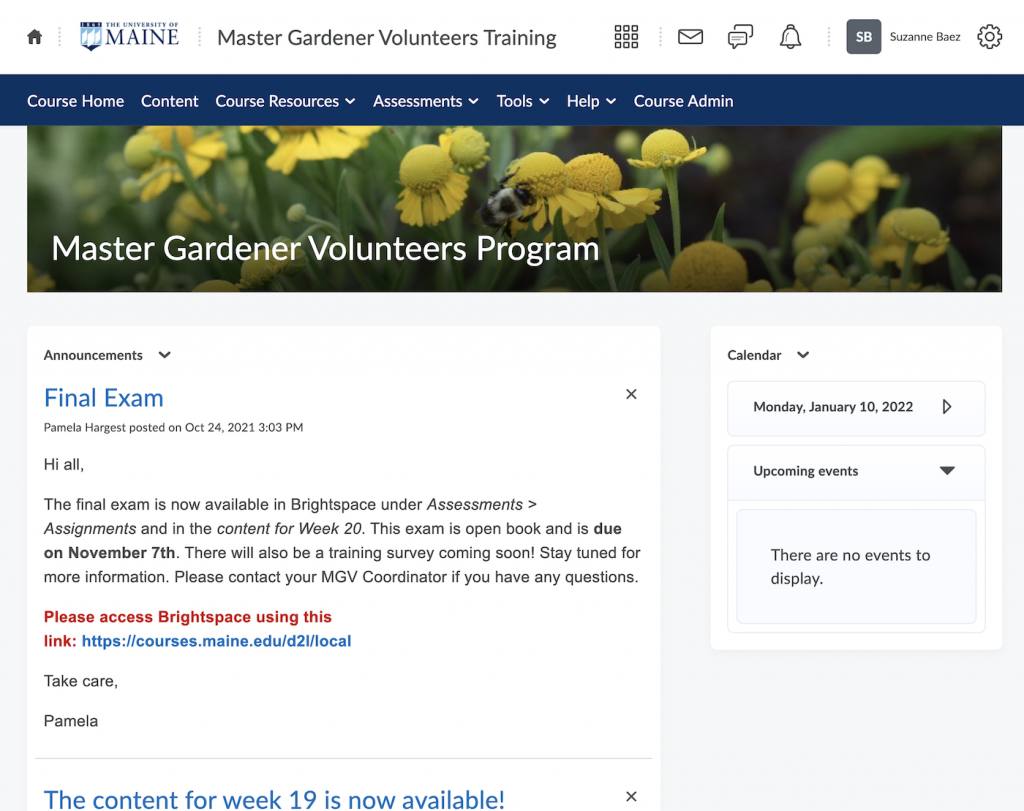
- The training ran from March through May and September through October.
- At the beginning and end of each semester, the students in each local cohort (in our case, Hancock and Washington Counties), met virtually with their program coordinator (Marjorie) for live sessions via Zoom.
- Every week, students were given 2 to 4 hours of self-paced learning content in the form of short videos and readings.
- Students completed weekly activities from home, participated in online discussion groups and took quizzes.
- Students also attended live, online Q and A sessions with Extension and industry experts, which aligned with the subject matter being covered that week.
- Students completed a required open-book midterm and final assessment, also online
What’s in store for 2022:
- Spring will bring active MGVs many online advanced training opportunities (https://extension.umaine.edu/gardening/toolkit/upcoming-events/ password ladybug) we’ve created just for you!
- There will be no MGV training offered this spring. This gives the staff the time needed to refine and expand the online curriculum that we developed during the pandemic.
- The online MGV training will begin in October, 2022. It will take a break during the holidays and resume for the following spring semester. If circumstances allow, there will be a few in-person hands on classes incorporated into the training.
- If you know of someone who would like to take the 2022 MGV training starting in the fall, please ask them to fill out the interest list form here. https://extension.umaine.edu/gardening/master-gardeners/how-to-apply/
- They will be informed when the 2022 application becomes available!
Webinars Offered- Winter Gardening Series
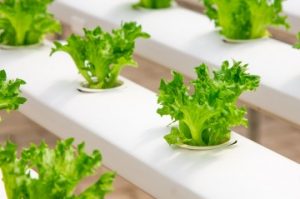
Hydroponics at Home
Monday, January 24, 6:00 – 7:15 PM
Plants need soil, light, and water to grow, right? Maybe not… Hydroponics is the science of growing plants in water instead of soil.
Extending the Gardening Season in New England
Monday, February 7, 2022 from 6:00 PM to 7:15 PM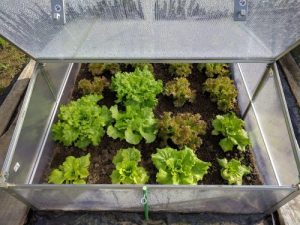
The growing season is short in New England, but techniques ranging from simple to ambitious can help extend it by weeks, months or even year-round.
Register for both Online program fee is offered on a sliding scale ($0-$10)
Statewide MGV Lunch and Learn Series – delivered by and for MGV’s
Beat the winter blues by tuning in for special monthly presentations by fellow Master Gardener Volunteers from across the state! This Statewide Lunch and Learn Series will take place on the first Thursday of each month, now thru April 2022.
No registration required!
Open only to Master Gardener Volunteers.
Please use the same Zoom information listed below for each webinar you attend:
Join from PC, Mac, Linux, iOS or Android: https://maine.zoom.us/j/82551078918?pwd=REVOenZwSWtxdkxOdlE2c3ZQL3FuUT09
Password: 093872 / Meeting ID: 825 5107 8918
Or Telephone: US: +1 301 715 8592
Upcoming Lunch and Learns
The Problem with Peat
Thursday, February 3, 2022, Noon – 1 pm
After several months of research, a committee of Cumberland County MGV’s will presentation on their findings on the environmental impact of harvesting peat moss and peat-free alternatives gardeners can use. They’ll also discuss other things gardeners can do to help eliminate their use of peat in the garden and encourage fellow MGVs to go peat-free! Committee members include Tom Witwicki, Bonnie Barthmaier, Barbara Dee, David Elliott, and Leigh Mundhenk.
Gardening for Birds
Thursday, March 3, 2022, Noon – 1pm
Join Knox-Lincoln County MGV (Class of 2017) and Wildlife Biologist, Gail Presley, for a presentation on how to enhance wildlife habitat in your gardens to attract birds. She started birding in college, and gardening soon after. Her most recent Master Gardener project involved creating a pollinator garden at the Langlais Sculpture Preserve in Cushing. She serves on the Board of Mid-Coast Audubon, and always makes time for birding wherever she wanders. Gardening for Birds will help home gardeners learn about what birds need in their habitat, and how to assess your property and plan for meeting those needs. You’ll receive guidance on what plants to choose, and suggestions for adjusting your practices to attract more birds to your yard.
Lunch and Learn Archives: Did you miss a past Lunch and Learn? – Find Recordings Here!
Additional Workshops and Opportunities
Tending Nature:
Native Plants and Every Gardener’s Role in Fostering Biodiversity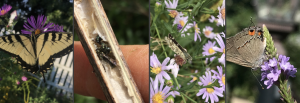
Sounds just right for MGV’s, doesn’t it? Ohio State University’s Bee Lab at the College of Food, Agricultural, and Environmental Sciences invites us to join live speakers on Zoom on Fridays at 10:00 AM (ET) from January 7 through February 11. Registration is FREE and allows participants to join the 60-minute sessions followed by Q & A. Details on the various presenters and their topics, along with on-line registration
Also, on the Bee Lab website, there are links to past presentation recordings “Tending Nature” is a fine chance for us to learn still more about promoting diversity as we grow native plants.
January 7th
Mary Gardiner, The Ohio State University professor and author
Beneficial Insect Biodiversity: What It Is and Why It Matters
January 14th
Doug Tallamy, University of Delaware professor and author
Bringing Nature Home: The Importance of Native Plants
January 21st
Lisa Olsen, Wild Ones
Cultivating a Community of Support for Native Plants
January 28th
Bryan Danforth, Cornell University professor and author
Host-plant Specialist Bees – Biology, Biodiversity, and Conserving Them in Your Backyard
February 4th
Heather Holm, Biologist and author
Bumble Bee Banquet: Selecting Native Plants for Bumble Bees
February 11th
Debra Knapke, Garden designer and author
Native Plants in My Garden? Absolutely!
Horticulture Therapy Training
Two-Part Training:
- Wednesday, January 19, 2022, Noon – 1:15pm (part 1 – Therapeutic Garden Design Elements)
Every garden can be therapeutic. By adding some specific and directed elements into your garden space you will transform it into a more welcoming place that offers respite and restoration to all who visit. January is the perfect time to begin designing or redesigning your garden spaces. Five design elements will be introduced with examples provided.
- Wednesday, February 9, 2022, Noon – 1:15pm (part2 – Sensory Plant Materials)
Every garden can be therapeutic. By adding some specific and directed elements into your garden space you will transform it into a more welcoming place that offers respite and restoration to all who visit. January is the perfect time to begin designing or redesigning your garden spaces. Five design elements will be introduced with examples provided.
The program fee is on a sliding scale ($0-$20). Registration is required, register online here (password: ladybug). Participants will receive the Zoom information after registering for this event.
On Demand Webinars
The UMaine Cooperative Extension presents On Demand Gardening Webinars, which come in bundles of 3 to 4 pre-recorded webinars (60 to 75 minutes each) on a gardening related topic as well as a list of resources.
Please note: If you don’t automatically receive the link in your email within 2 business days, please contact us at extension.gardening@maine.edu.
Home Orchard Bundle
In our home orchard bundle, you’ll learn how to start your very own backyard orchard, including site and variety selection, pest and disease management, pruning techniques, and more!
Program Fee: Offered on a sliding Scale – $0, $15, $30
To learn more and to register, visit our registration page here.
Gardening with Natives Bundle
In our gardening with natives bundle, you’ll learn about the important role of native plants in our ecosystems, how to start and care for seed grown native plants, landscape design and maintenance practices that support pollinators, and edible native plants found in the wild and your own backyard.
Program Fee: Offered on a sliding Scale – $0, $15, $30
To learn more and to register, visit our registration page here.
Composting and Soil Health Bundle
In our composting and soil health bundle, you’ll learn about the basic principles of composting, the benefits and uses for cover crops in the home garden, when and how to apply manure, and best practices for optimizing soil health.
Program Fee: Offered on a sliding Scale – $0, $15, $30
To learn more and to register, visit our registration page here.
Seed Selection and Starting Bundle
In our seed selection and starting bundle, you’ll learn how to select seeds for the home garden, exciting new vegetable varieties and their unique characteristics, how to select lights for indoor seed starting, and how to manage your indoor lighting to enhance plant growth.
Program Fee: Offered on a sliding Scale – $0, $15, $30
To learn more and to register, visit our registration page here.
MGV Fedco Group Order Reminder!
We could save Up to 20% discount with our MGV Group Order. The deadline is January 12, and our Group Order # is 490023. And, if your order screen asks you for your credit card # you are not part of the group order.
(Original article from November)
Ordering Trees, Shrubs, & Perennials happening again this year! Great chance to add fruit, berries, and nuts to your landscape, or to work on pollinator support and re-wilding. Save up to 5, 10, 15, or 20%, depending on the size of the total order.
You must use Group Order #490023 to get the discount.
Our group name is Hancock Washington County Master Gardeners.
Here are your directions:
- Access their inventory at Fedco Seed’s website, Trees section. Or go to their “Trees” ordering page. Log in using your own email address.
- When you review your order prior to checking out, click the “Part of a Group” checkbox. Then go to “Checkout” and type in the group order number where indicated: 490023.
If you are prompted to enter a credit card number, stop. Back up. You did not choose “Part of a Group”. - You will receive a confirmation email at the address you used to log in. Until your coordinator finalizes the order, however, Fedco cannot confirm receipt of your order.
Our MGV deadline to get orders in is January 12. (You’ll see the 14 for Fedco, just setting local deadline a bit ahead in case there are any snags to smooth out as the coordinator).
Once the order is finalized, I’ll let you know our full discount. When the order ships, I’ll let you know your actual final amount due to me (they charge my credit card, you reimburse me), and directions to pick up. Pick up site is in Ellsworth.
Last year we were able to tap the 20% discount! Happy planning and dreaming.
Collaboration Grows Well in the Native Gardens of Blue Hill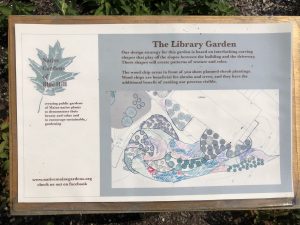
Partnership among three gardening friends sparked a process that characterizes the spirit of the Native Gardens of Blue Hill. Avy Claire, Cathy Rees, and Pam Johnson were throughout their lives invested in collaborating with nature, and then in 2015 they created a gardening partnership that flourished and propels ongoing work. Six years later, an impressively expanded network of partners has joined to take part in efforts that benefit the environment and assure continuation of the work initiated by the co-founders.
As we look forward to their February 15 presentation for MGV’s on sustainable gardening, it is helpful to become better acquainted with them and their work. Determined to help amplify the alarm being sounded about products and practices detrimental to ecology, Cathy, Pam, and Avy used local, native plants while building garden spaces in synchrony with nature. 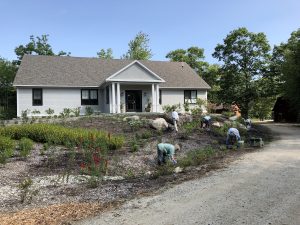 Working as unobtrusively as possible, they apply an organic, incremental approach to gardening and simultaneously have helped expand the local market for native plants. Those well-founded efforts have proven bountiful in the gardens at Blue Hill and are, of course, being replicated by those associated with the project.
Working as unobtrusively as possible, they apply an organic, incremental approach to gardening and simultaneously have helped expand the local market for native plants. Those well-founded efforts have proven bountiful in the gardens at Blue Hill and are, of course, being replicated by those associated with the project.
Give yourself plenty of time to explore the website for the Native Gardens of Blue Hill that offers an encompassing view of their project, and you will surely be stirred by the design and development as well as by the expansive network of associations that arise from the collaborative efforts. Our MGV’s have participated in the project since its inception and are credited for skilled, faithful volunteerism along with initiative in handling projects and contributing to the teaching/learning process. Expect to see familiar faces while studying the website and again when visiting the gardens which are open to the public. One face you will not see though is Pam’s since she passed away several years ago. Quite naturally, Avy and Cathy note that Pam’s spirit remains and continues to so pleasantly influence.
Taking Sustainable Gardening to the Next Level
by Cathy and Avy
Noon – 1 PM
In this Feb. 15, 2022, ZOOM presentation we will cover gardening practices that will make your garden a better place for you and your family as well as the rest of life that calls your garden home. We will cover ways of fine tuning your garden practices to the landscape, working toward a closed loop system of gardening and developing an appreciation for the soil microbiome. We will share ideas and resources for working more closely with nature with a focus on ornamental and natural gardening. REGISTER by emailing sue.baez@maine.edu
Our Master Gardener Volunteer Program – What You Didn’t know!
Q: What do you get when you “plant” a program with amazing potential and tend it over 30 years with plenty of skill and an abundance of loving care? (Hint: Check the photo of our MGV queen bee, Marjorie Peronto; MGV First Class, Nancy Adams; and MGV “trowel” lawyer, Alison King. Their image represents some of the fine results as over 700 Master Gardener Volunteers have grown through the flourishing of our MGV program.)
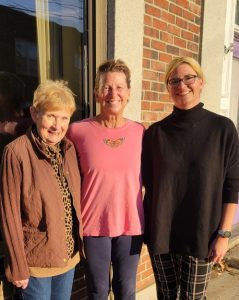
A: Much more than can be properly addressed in a newsletter article, but here’s a time lapse view of fruitful development of our MGV program over the past 30 years.
Nancy Adams completed Hancock County’s first class for MGV’s in May 1991, right after the educational wing was added to the building and just a month before Marjorie was hired. Nancy and her neighbor, Shari Kraljic, studied together through the 10 sessions from March-May to learn from Gleason Gray, Clay Kirby, Lois Stack, David Handley and other University of ME staff. Both students have nice memories of the class and still use the handouts offered 30 years ago!
There were no MGV project gardens, but Nancy volunteered on a committee led by the city’s landscape architect to identify trees that line the streets of Ellsworth. Nancy also applied MGV lessons to coach her daughters to become gardeners and instill a love of gardening while creating an exquisite landscape with gardens at their home. Unaware that MGV work could continue after the initial training, Nancy served as a Literacy Volunteer and as a volunteer for The Grand’s live events while she and her husband owned and operated The Craft Barn.
Nancy was surprised to learn in 2016 that she could resume volunteering as a MGV and was quick to join Mary Jude as co-leader of the raised bed project at the BE Moore in conjunction with Friends in Action. They and their team of MGV’s grow produce which is distributed to Seniors at FIA coffee hours, to children attending the YMCA pre-school, and to meal sites. Impressive indeed that Nancy is a MGV 30 years after her initial training, yet her continued application of the skills taught to us, love of gardening, and dedication to the program are par for the course. Those are some of the major aims of the program and structural parts of who we are, right?
Watching Marjorie work today, we wonder how she and her colleagues developed and continue growing such a large, productive MGV program. The essentials for its flourishing are analogous to what’s necessary for growing a fruiting perennial: hardy root stock, proper siting, shaping, nourishing, and harvesting. Before considering the continuing cycle of pruning, feeding, and harvesting in the MGV program, let’s look at the foundational elements.
*Certainty resides in the quality of the program itself as if it were the best of root stock. In the 1970’s, county agents in Washington state created the Master Gardener Volunteer program as a means of dealing with questions about horticulture posed by the public. With years of refinement, the program became so robust that it now grows in all 50 states and Canada as well.
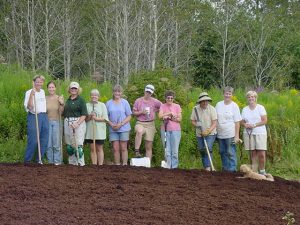
*Our own MGV site on Boggy Brook Road is set solidly in the richest of earth. With adequate space for it to grow, critical additions over the years include: our lush demonstration gardens, hoop house, raised beds, and garden sheds too. This framework for teaching and learning is also a welcoming space for the public to attend special events such as the semi-annual open house & plant sale and gardening workshops.
*Marjorie and her colleagues have been pruning as needed to shape the MGV program to perfection. Hired in 1991 to replace two men who were retiring, Marjorie’s overwhelming responsibilities included not only agriculture and horticulture but also 4-H! Given her experience with and enthusiasm for horticulture, within a few years she was able to focus on her area of expertise. Thus, the refinement of our MGV program grew toward a semester of training which Marjorie quite clearly loves. In addition to conferring with her counterparts in other Maine counties and across the U. S. for ideas on improvements, Marjorie in 2005 created our MGV Advisory Committee to further aid in the shaping of the program.
*As if testing and amending the soil and then watering this hardy, well-sited program plant, about 150 volunteers each year nourish it to keep everything vibrant. We do indeed serve as ambassadors who feed the program with our volunteerism. Building awareness of and support for MGV while addressing community needs also fuels and rewards all.
*By training and mentoring about 20 new MGV’s per year for the past 30 years and retaining 80% of volunteers from year to year, it’s quite a harvest to enjoy. Though initially there were no projects in which to garden, there now are 15-20 throughout the two counties. Thus, each year about 150 of us volunteer over 4,000 hours to grow and glean 8 tons of produce for donation to area meal sites and food pantries.
The cycle of shaping, nourishing, harvesting required major adjustment as of March 2020, but not even a continuing pandemic halted MGV progress. Alison King who on November 7 completed the final exam for the 2021 class attests to the dedication of staff, classmates, and MGV’s who coached along through her summer internship in the gardens.
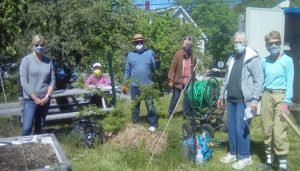
The pruning needed for the 2020 class to complete when Covid restrictions were suddenly enacted prompted staff to improvise while assuring student success. Then Marjorie and her Maine colleagues reshaped the training for 2021 such that Alison deemed it a game-changer. Finally she could get the training in a format flexible enough not to interfere with her profession as an attorney. She is impressed with the organization of the program from recruitment through self-study and group discussions on Zoom to internship and final assessment. Not surprising that Alison notes camaraderie as a special benefit of the program.
Alison will in 2022 join the MGV Advisory Committee and be involved with yet additional shaping. Maine’s MGV training will in 2022 begin in the fall and continue for a year with students graduating in summer 2023. Though there will be no 2022 MGV graduates, existing volunteers will cover the garden projects to assure harvests as usual. Plenty of good work for us!
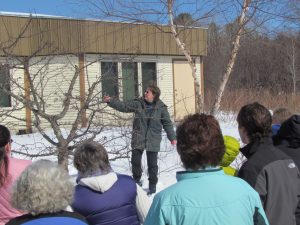
While Marjorie and colleagues invest in building awareness and the on-going work of the program, she encourages us to do the same. We don’t need much prompting though, do we? Once a member of this group, we savor the delightful fruits of learning/teaching, growing & donating, and being among gardening friends who enrich our lives. AND someday we will resume the fun of savoring all those special MGV snacks in the best of company.
Shout out to all MGVs!
Know an MGV who’s done or is doing something intriguing or inspiring? Send in their name to MGVnewsletterinput@gmail.com; someone on the Newsletter team can follow up for a future newsletter spot. We know there are so many neat stories out there or MGVs finding ways to apply our training and experience.
Please be reminded to REPORT your Master Gardener Volunteer hours monthly
Volunteer Hours are due NOW – REPORT HERE
This month’s newsletter sent by Sue includes articles from our new “Communicate with MGV’s” task force. We’d like the next edition to feature your suggestions and articles about gardeners and gardens. Please contact us at MGVnewsletterinput@gmail.com with your ideas as we work on ways for us to stay in touch with all our gardening friends while following virus-safe guidelines.

